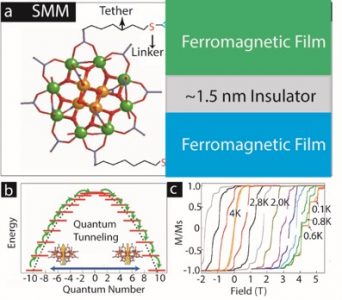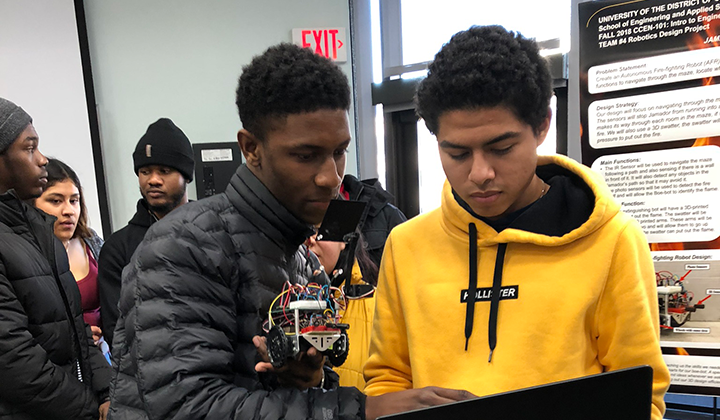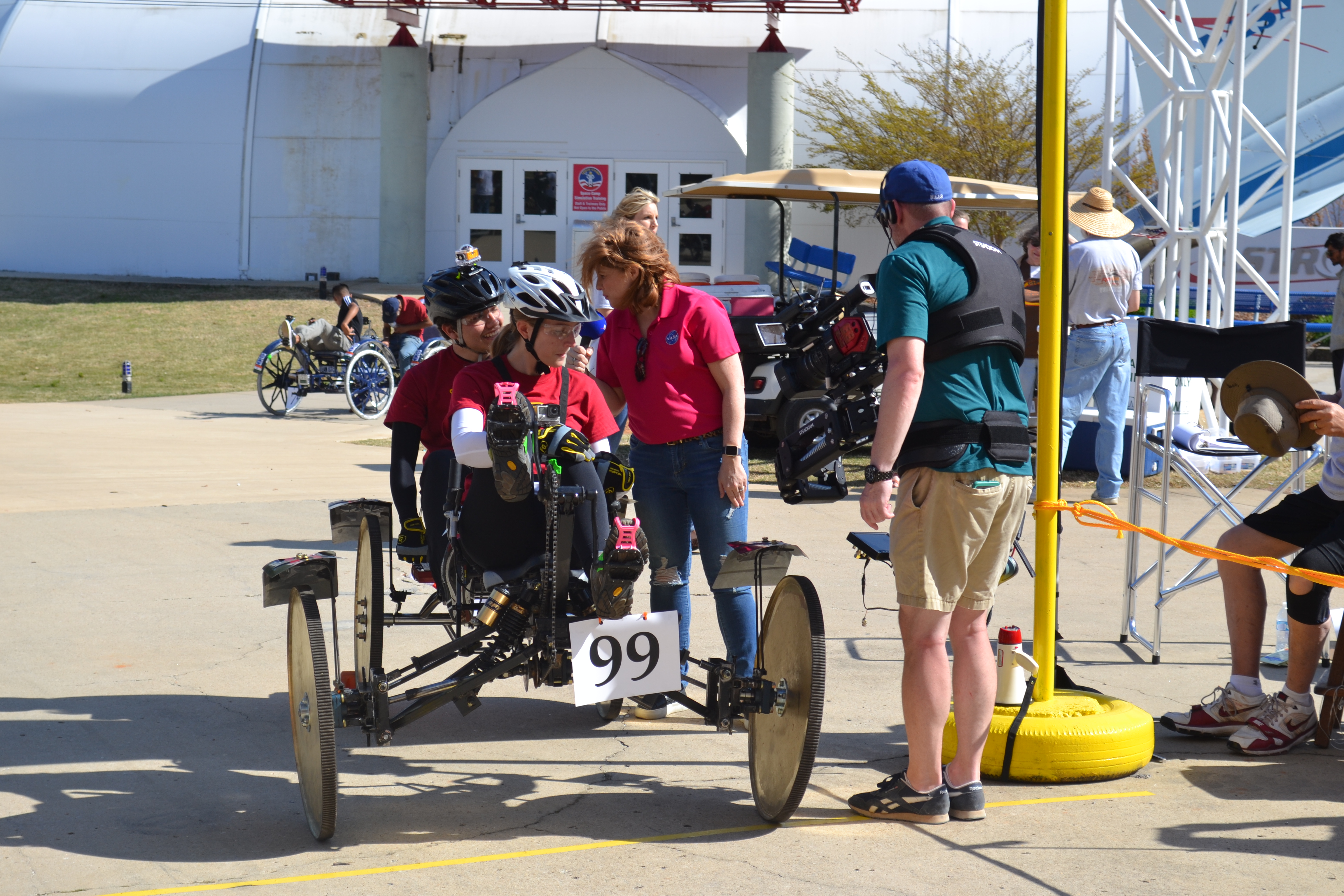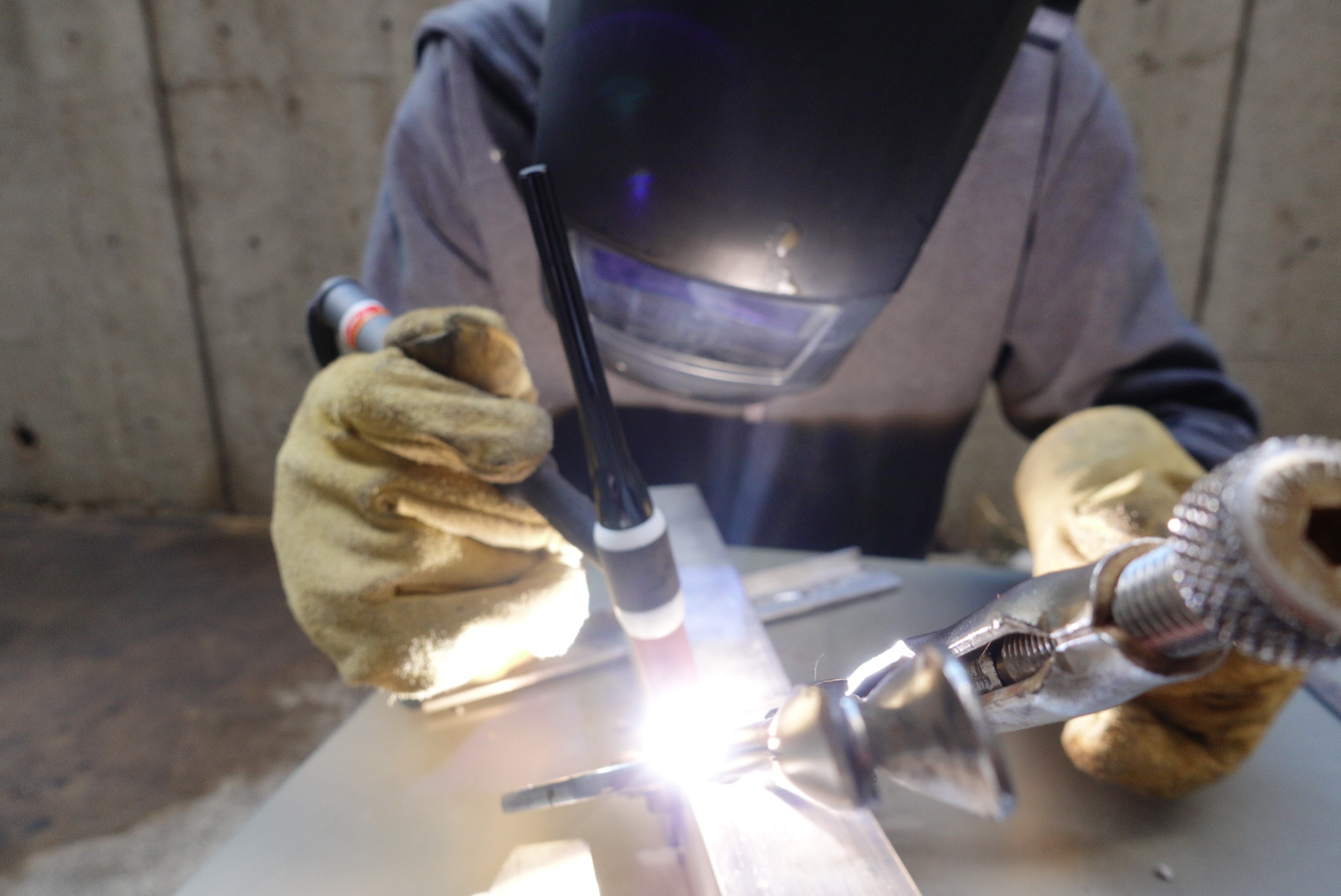(1) Spin Based Computer Devices, Sensors, and Energy Conversion System
Lead and Contact person: Pawan Tyagi
Co-PI Hongmei Dang, Kate Klein
Part-1 Molecular Spintronics Based Logic and Memory Units for Futuristic Computers
- Can molecules be the logic and memory devices of future?
- The concept of utilizing molecules as a logic device was proposed in the 1950s when modern computer was in their infancy. In the late 1980s, the discovery of Nobel Prize-winning spintronics devices showing two resistance states for the binary operations with a ferromagnet-nonmagnet-ferromagnet has revolutionized our data storage capacity and almost each of us are using spintronics in our modern-day computer hard drive.
- Spintronics (acronym of spin+electronics) opened new frontiers to harnessing spin properties of electrons as compared to electronic charge, for discovering futuristic logic and memory devices. Electron spin can be manipulated with low energy input to yield different resistance states without generating high heat. In traditional electron charge based devices high energy input and large heat generation are limiting the future possibilities of packing higher number of binary device/area.
- Interestingly, transferring the role of nonmagnet section of the ferromagnet-nonmagnet-ferromagnet based traditional spintronics device to a molecular channel produce a brand-new field of molecular spintronics. Molecular spintronics devices can harness molecular quantum states for enabling advanced memory operation, quantum computation and exploring multi-state logic devices to pack more computational power/unit area as compared to binary computer devices. However, integrating molecules into devices could not progress beyond the stage of experimental demonstrations. Due to extreme technological challenges, conventional low-yield and defect prone molecular device fabrication approaches focused on gold or nonmagnetic electrodes and simple molecules. Advancement in molecular spintronics will require connecting high potential molecules such as single molecular magnets, porphyrin, single ion magnets with the ferromagnetic electrodes.
- To address technological challenges, Dr. Pawan Tyagi has initiated a magnetic tunnel junction(MTJ) based molecular spintronics approach (MTJMSA) (Fig. 1a). MTJMSA is only approach that allow molecules to bond with two ferromagnetic films and enable the use of:
- (i) different types of ferromagnetic alloys without oxidizing or etching them during fabrication,
- (ii) different types of magnetic molecules without damaging them during fabrication and use,
- (iii) magnetic studies before and after coupling the molecules between two ferromagnetic electrodes ,
- (iv) robust and reproducible coupling between a magnetic molecule and ferromagnetic electrode with a linker,
- (v) high yield fabrication with commonly available microfabrication tools, and
- (vi) various control experiments to clearly distinguish response from molecule and artifacts.
We will utilize MTJMSA to harness and explore the device capabilities of high potential magnetic molecules like a single molecular magnet(SMM) for inventing futuristic computer devices (Fig. 1). SMM can transition among several quantum states (Fig. 1b-c) and may allow the realization of multiple device states. If MTJMSA show 5 states computational power of one future computer may become more than 1000 computers of present time. CREST grant will support the holistic exploration of the fundamental science of MTJMSA based unprecedented multi-state spintronics devices- that may revolutionize future computer technology. MTJMSA offers endless innovation opportunities because number of molecules are endless J.

Fig. 1: MTJMSA will employ (a) SMMs with at least two tethers, ending with –S linker protected by acetate groups. (b) SMM can assume a target spin state from +10 to -10 and show (c) magnetic hysteresis loops. Credit: (b) and (c) are from Ref. L. Bogani and W. Wernsdorfer, Nat. Mater., vol. 7, pp. 179-186, 2008.
New PhD students and collaborators interested in computer engineering are welcome to join this project in CNRE.
________________________________________________________________________________________________________________
(1) Spin Based Computer Devices, Sensors, and Energy Conversion System



